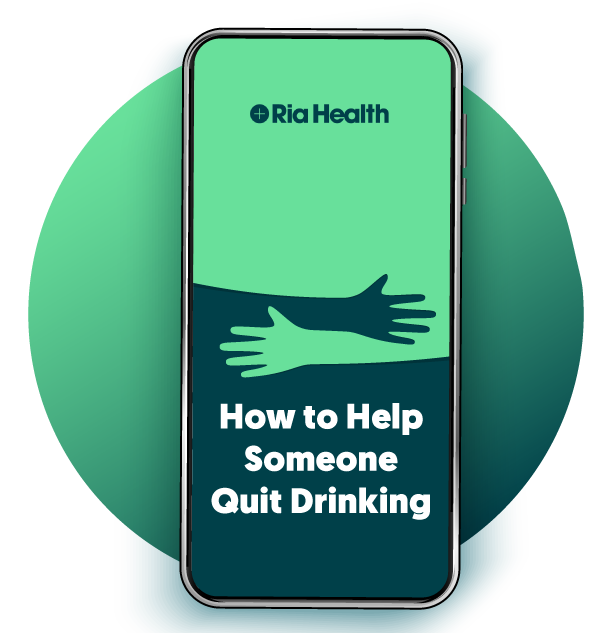9 Ways to Cope With Family Drinking at Holiday Gatherings
Holidays bring up a lot of mixed feelings. Most of us just want to have fun, visit, and be accepted at family gatherings. But for many, there are also certain minefields we dread having to navigate this time of year. One of these is worrying about how to handle family members who drink too much at holiday gatherings. This can be especially tough if you’re in recovery yourself.
While you can’t control your loved one’s behaviors around drinking, you can set your own boundaries. And you may be able to make the environment less encouraging of alcohol consumption. If you feel your family drinks too much, and it triggers you during the holidays, here are some ideas that may help.
9 Ways To Deal With Loved Ones Who Overdrink During Holidays
1. Plan a dry event

If you’re the host, then you can set the expectations. Make it clear that this will be a family event without alcohol. Ask participants what they would like instead (tea, punch, soda). Try one of these nonalcoholic winter drink recipes. Plan fun activities, such as games, a family favorite movie, or invite people to contribute to a family slideshow. Ask others for suggestions.
If you’re looking for something to do other than drink with your family and friends, you can also try one or more of these alcohol-free holiday activities. Think back to childhood—what are some of your favorite ways of getting into the spirit of the season?
2. Define and set your boundaries
If you’re not the host, then express your boundaries to the host, or family as a whole. This doesn’t necessarily need to be a dramatic outcry. For example, you might simply say, “I’m looking forward to the holiday and want to participate. However, I won’t be comfortable if alcohol is involved.”
If you are also working on stopping or cutting back drinking, or are remaining sober, then it’s all the more important to set such boundaries. Your personal health and long term happiness is more important than sparing a family member’s feelings in the short term. It doesn’t help anyone to go along with things you’re not okay with. And, if their behavior is harming you, they have a right to know that.
3. Share your own experiences
Some people might feel like your cutting back or quitting drinking is a criticism of them. But you don’t have to come across as judgmental.
You might let family members know, “Since I’ve stopped drinking so much I feel a lot healthier. I’ve lost weight and I have more energy.” Frame it as a personal choice that’s about your own well-being. Sometimes people are more comfortable with such a positive response, and may be more accepting, rather than feeling ashamed.

Download Our Free Guide
Download our guide on How to Help Someone Quit Drinking. Learn more about alcohol use disorder, communicating with a loved one, and the resources available to help.
4. Leave early if it helps
Another option is to alter your own participation in the event. If you are concerned about dealing with drunk family members, plan to leave early. Let your host know that you won’t be staying late this year, or that you’ll need to leave by 8 p.m.
Or, if uncomfortable drinking and inappropriate behaviors begin, politely excuse yourself. Say that you’re grateful to see everyone, but need to get going. They’ll likely get the point.
If you’re the host, things can get trickier when someone in the family drinks too much. Don’t let your loved one drive drunk, but state that no more alcohol will be served. Offer to drive them home, or ask someone else to do so, if appropriate.
5. Stop playing the family games
Sometimes people struggling with alcohol abuse get caught up in family roles that aren’t helpful. Maybe Uncle Joe tends to get drunk and belligerent, and Aunt Miley always asks him to stop. Then Mom cuts in and tells Miley to let him be.
Perhaps your two siblings always argue about politics or religion once they’ve had a couple of drinks, and try to bring you into it. Be prepared to be triggered, and decide not to participate this year. It’s unlikely anyone’s viewpoint is going to change in one day, so decline to get involved.
It’s your choice to participate in the drama or not. Rather than acting in your typical role, stick to your own needs, feelings, and boundaries.
This may mean going to the other room, leaving early, or joking that you aren’t getting involved in politics. Explore what your own boundaries are, and what decision you will feel best about later.
6. Be kind

Some people imagine that standing up to behaviors that make you uncomfortable will involve yelling and tears. This may still be the case, but it doesn’t always have to be. Let your family member know that you care about them, and that you’re concerned. And, explain that you’re staying away from heavy drinking and need to limit your time around alcohol.
Also, consider that some people drink more at family events because they’re uncomfortable. They may feel judged, left out, or criticized by others. If they aren’t drinking yet, or have just started, you might make a point to engage with that person. You can even reach out ahead of time and let them know you’re looking forward to visiting.
7. Avoid rescuing or managing
There’s a difference between setting your own boundaries, being kind, or changing your own behaviors, versus controlling another. One is staying within your own zone, while the other is stepping in another’s.
Take a look at these rephrases, and see if you can notice the difference:
“Your drinking is getting really out of control,” versus, “I’m uncomfortable around heavy drinking these days, especially at family events.”
“I think we should quit drinking this year so we don’t make Mom upset,” versus, “I’ve decided to not drink at family events anymore. It makes Mom upset.”
“I’m sick of arguing with my drunk sister,” versus, “I feel stressed when we argue at these things, and it usually involves drinking. I don’t feel safe being there if there will be alcohol.”
8. Skip out if you need to
If you deem that it simply isn’t safe or appropriate for you to participate this year, that’s okay. Family members may be upset, but so will you if the event is harmful to you. And, you’re likely not the only one in the family who has misgivings. Setting this limit may even encourage others to follow suit.
If you still want to celebrate, ask to get together with some family members for a smaller gathering later in the week. Drop off a gift, and let loved ones know you’re thinking of them.
9. Offer help if it’s requested
If your family member wants to quit drinking and needs help, they’ll ask for it when they’re ready.
If you have any personal experience, or know of someone else who has gotten better, then feel free to share successes at that point. Avoid being judgmental or pushy, but let them know you support anything that helps them feel better.
If you’re struggling to stick with your own drinking limits during the holidays, or you have a relative who is ready to get help for a drinking problem, there are now online options. Ria Health offers coaching, support groups, medications, and more—all through a convenient smartphone app. Reach out now, for a happier holiday, and a healthier year.
Will insurance cover treatment? Verify Coverage
Have Questions? Call (800) 504-5360



